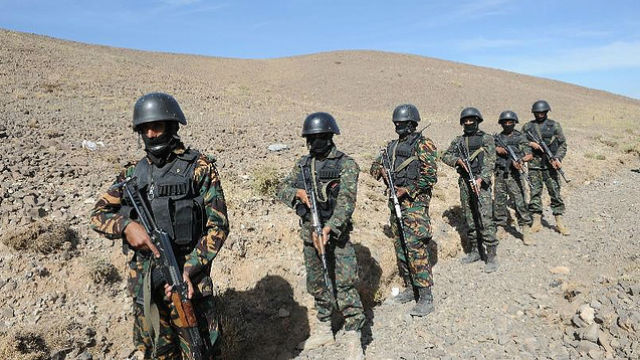Al Qaeda May Have a Terrifying New Weapon

With the recent embassy closures and State Department travel warning lasting through the month of August, Americans everywhere in the world have cause to be at least a little nervous in the coming weeks. But how concerned should we be?
Few details have been made public about the threats facing Americans. But if the worry voiced by one American source to an Israeli intelligence news service is genuine, the travel advisory’s admonition that Americans should “be aware of their surroundings” and “adopt appropriate safety measures” rings hollow. The next wave of terrorist attacks may be fueled by explosives surgically implanted inside the bodies of suicide bombers:
According to one high placed US official, concern focuses on the possibility of terrorists carrying explosive devices implanted inside their bodies. DEBKAfile’s counterterrorism sources add that plastic explosives in the body of a would-be suicide bomber without metal components are undetectable by standard screening devices such as those used at most international airports.
It has been suspected for some years that doctors and surgeons in Yemen in the service of Al Qaeda in the Arabian Peninsula were experimenting with implanting of plastic explosive devices inside the bodies of suicide bombers or even animals. According to Western counterterrorism sources, the surgeon would open the abdominal cavity and implant the explosive device amongst the bomber’s internal organs.
It’s a chilling prospect: terrorists wired from the inside, undetectable by widely used scanning technology. It is unclear what safety measures Americans tourists abroad could adopt that would mitigate the risk of being a target of this kind of terrorist act. This is way beyond looking out for unattended packages and luggage and reporting them to authorities.
A similar but less technologically advanced method of hiding a bomb was apparently used by the Taliban in a suicide attack in Afghanistan last December:
Mr. Khalid’s aides took the visitor to an armored room in the basement of a safe house in Taimani, an upscale neighborhood in the capital city, for a security screening. They were no doubt mindful of what happened in September 2011 when a Taliban peace emissary was allowed to meet with a prominent Afghan peace envoy and then killed him with a bomb hidden in his turban.
Watching the man over closed-circuit television, they ordered him to strip naked, which he did. Satisfied, they let him get dressed and took him to see their boss upstairs.
Then he blew up. The suicide bomber killed only himself, but Mr. Khalid sustained severe abdominal wounds as well as injuries to his hands and arms.
Now, months after that attack, on Dec. 6, a spokesman for the National Directorate of Security, Shafiqullah Tahiri, confirmed that the attacker had hidden the bomb inside his rectum.
Less than a year after the bombing in Benghazi that took the lives of four Americans and set off a political firestorm, it stands to reason why the Obama administration, out of an “abundance of caution,” would issue these warnings and close embassies and consulates in 19 countries. One would hope that our intelligence agencies are thinking a step ahead of international terror organizations rather than the other way around.



